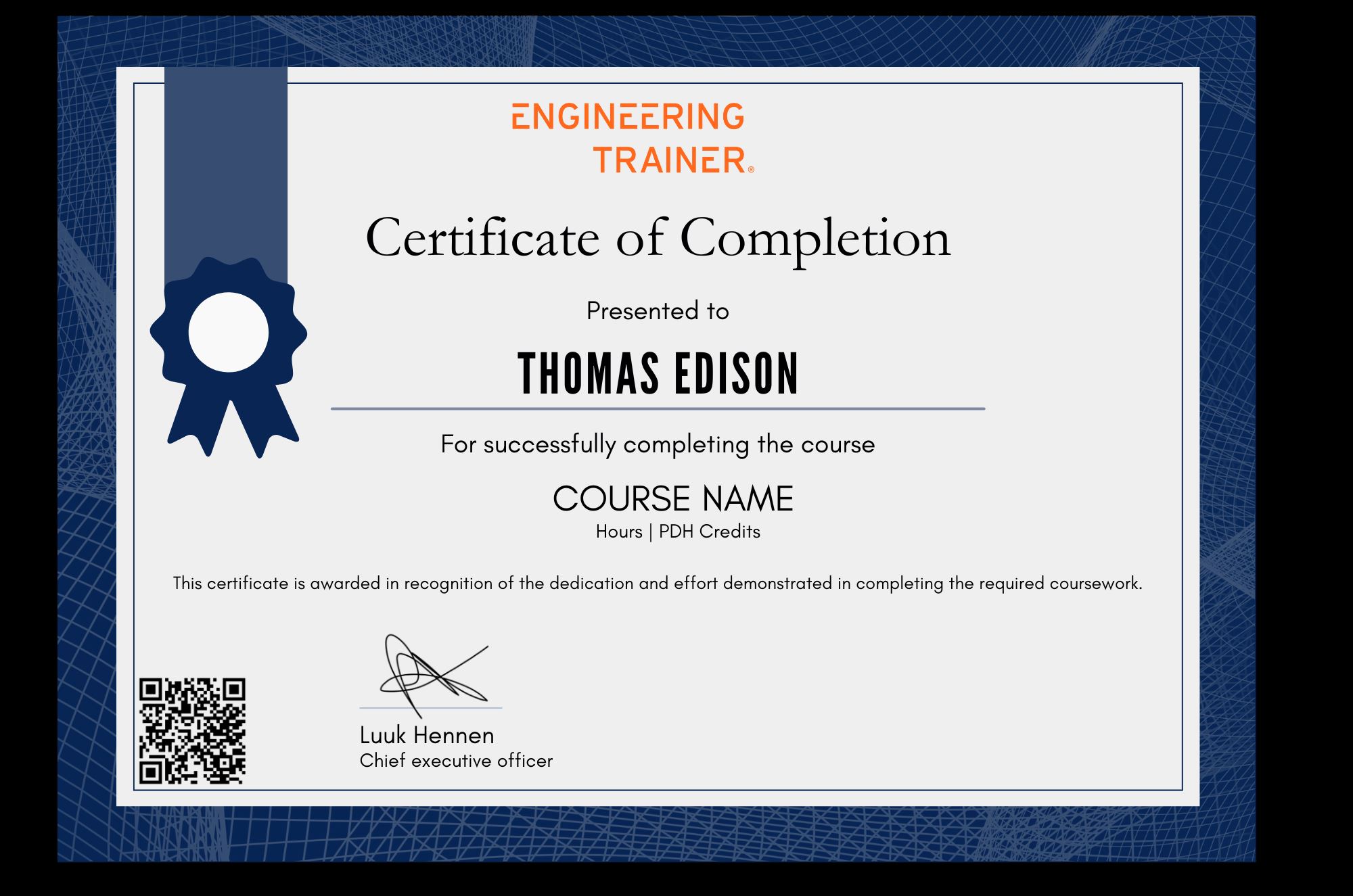Corrosion Threats in the Oil and Gas Industry
Why take this course?
This self-paced course covers corrosion threats in the oil and gas industry, including types like pitting, stress corrosion cracking, and hydrogen-induced cracking. Learn to identify corrosive environments and develop effective management strategies. The course features video lectures, quizzes, and awards a certificate with PDH credits upon completion.
What you'll learn
After this course, you...
• will have learned about different types of corrosion applicable to the oil and gas industry, such as uniform corrosion, pitting corrosion, and stress corrosion cracking, and understand the specific conditions that promote each type,
• understand the various Corrosion Monitoring Techniques such as visual inspection, non-destructive testing methods, and chemical analysis and how these can be used in practice,
• know how corrosion can be prevented or mitigated through material selection, coatings and linings, cathodic protection systems, and chemical inhibitors,
• have seen a number of detailed case studies; to understand the causes of corrosion incidents, their consequences, and the lessons learned,
• have the skills to play a proactive role in managing corrosion risks in your facility,
• have enhanced your professional competence in materials science and engineering.
About the course
Corrosion poses a significant threat to the infrastructure and operations of the oil and gas industry. The destructive nature of corrosion can compromise the integrity of equipment, pipelines, storage tanks, and other critical assets, leading to safety hazards, environmental risks, and financial losses.
This course will focus on identifying specific corrosion threats that are commonly encountered in the industry. Participants will learn about the various types of corrosion, such as uniform corrosion, pitting corrosion, stress corrosion cracking, and hydrogen-induced cracking. The course will also cover corrosive environments and factors that contribute to accelerated corrosion.
By the end of the course, participants will have a thorough understanding of corrosion threats in the oil and gas industry and other industry sectors, as well as the knowledge and skills necessary to develop effective corrosion management strategies and practices.
The course consists of 12hr of live sessions with the instructor. All training content is provided through your EngineeringTrainer account.
Meet your instructor
Magdy Girgis
Materials Science, Metallurgy
Who should attend this course
Those wanting to gain a comprehensive understanding of the corrosion mechanisms in oil and gas facilities:• Engineers and Technicians; Asset and Facility Managers
• Inspection and Maintenance Personnel
• Health, Safety, and Environment (HSE) Professionals
• Project Managers and Consultants
• Regulatory and Compliance Personnel
Prerequisites
Participants are expected to have a basic understanding of engineering principles and some familiarity with corrosion. A background in mechanical engineering, chemical engineering, materials engineering, or corrosion engineering is beneficial.Program & Details
-
Corrosive Service
Live
1. Corrosion resulting from dissolution of corrosive gases in brines
2. Hydrogen sulfide (H2S sour)
3. Carbon Dioxide (CO2 sweet) -
Oil Field Requirements
Live
1. Internal corrosion of equipment due to the presence of carbon dioxide (sweet corrosion) and/or hydrogen sulfide (sour corrosion).
2. Low temperatures, less than 150C; electrolyte formation
3. Higher temperatures; corrosion reactions involving gas phase reactions -
Corrosion Mechanisms
Live
1. Effect of pressure on CO2 corrosion
2. Effect of fluid flow on CO2 corrosion
3. Sour corrosion - H2S
4. Corrosion due to H2S and CO2 -
Hydrogen Damage
Live
1. Hydrogen Embrittlement / Cracking
2. Hydrogen induced cracking (HIC) & Hydrogen blistering
3. Stress orientated hydrogen induced cracking (SOHIC)
4. Sulfide stress cracking (SSC) -
Factors that contribute to accelerated corrosion
Live
1. Erosion Corrosion
2. Cavitation Damage
3. Corrosion Fatigue
4. Stress Corrosion Cracking
5. Carbonate/bicarbonate cracking -
Corrosion problems in Hydrotest
Live
1. Common problems
2. Construction
3. Hydrotest fluids
4. Dewatering
5. Lay-up
6. Oxygen ingress
Certification


Why choose EngineeringTrainer
-
Unlimited Team-wide Access
-
Advance Technical Competences
-
Courses by Industry Authorities
Since using EngineeringTrainer our internal mentorship has a much more matured character.
Logan Chapman - COO at Chapman Consulting Inc.
Request a Quote
Train Smarter. Grow Faster.
Build real-world skills that help you make better engineering decisions, reduce errors, and stand out in your field.





